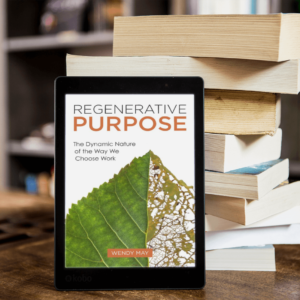As we transition into a new year, many of us will take time to look back on our experiences and lessons from the past year. And many of us will dream and plan around what we’d like to achieve, feel, create or become in the year ahead.
Traditionally, this is the time for making New Year’s resolutions or setting intentions.
There are three major reasons why this process – repeated by millions of people around the world year after year after year – almost never creates meaningful change in our lives.
1. Resolutions point to what is not working
Despite a growing body of research suggesting that humans often respond better to positive feedback, we still rely heavily on self correction when we are trying to make changes in our lives. We look at some aspect of our life where the current state of things is less than ideal, then analyze what is going wrong and ponder how we can fix it.
The underlying question we ask ourselves, consciously or subconsciously, is some variation of “what needs to be fixed?” or “what could be improved?” or “what do I want to do better in my life?” It’s an ongoing orientation of optimization, which subconsciously spends a lot of energy on our problems.
2. Resolutions focus on results instead of process
The way we typically write resolutions (lately it’s more fashionable to call them intentions – same same) is by defining a result we want to achieve. We imagine the desired end state. But we often overlook the process that supports that outcome. We envision the What, but not the How. We set our sights on the destination, without fully seeing the path to get there.
The intention we outline might be something like “I want to finish my graduate degree” or “I want to start my own business” or in my case, “I want to write and publish my first book” in 2019. We are looking towards the horizon through our metaphorical binoculars, scoping out a dreamscape we want to visit that is often way waaay out there.
3. Resolutions only describe aspirational behaviors
The traditional approach to New Year’s resolutions has trained us to focus on behavior change or state change. The result that we want is usually described as something that’s actionable or observable. I want to do this and not that. Or I want to shift from here to there.
We keep telling ourselves (and others) all the myriad ways we want to do things differently. We might say things like “I will go to yoga every week” or “I will eat less meat” or “I will take singing lessons”. We make declarations to stake out the signposts of our future best-behaved self.
If the same old New Year’s resolutions are not working for you, what can you do instead?
1. Celebrate what is going well for you
Instead of focusing on what is not working, it might benefit us to look at what is going well. We can give ourselves a round of applause for what is good in our lives in order to reinforce that. We can cultivate gratitude for our blessings. We can celebrate our successes.
2. Identify the process required for results
Instead of simply defining the result we are hoping to produce, it might be more helpful to identify the process that will help us along in that direction. Look at how you can foster progress towards your desires, rather than getting fixated on the end goal. By focusing on the way to get moving, instead of where you want to be going, you’re more likely to get started… and more likely to stay on track if the road gets a bit rough and winding.
3. Review beliefs linked to target behaviors
The behavioral approach to change misses the fact that our behaviors and our beliefs are tightly coupled. It can be difficult, if not impossible, to make sustainable changes by working only with behaviors. Of course, we do need to look at what we are doing. But that’s not enough if we want change to stick. We also need to look at the underlying values, viewpoints and belief systems that support our desired (and undesired) habits.
You now have three ways you can do New Year’s resolutions differently as we step into 2019. Or rather, do life differently, by not making them. Try it out and let me know how it goes.
If this article sparks some insight for you – whether you are realizing a new perspective or a new commitment or a new inquiry – please feel free to share in the comments.











Great article Wendy! Am reading Atomic Habits and has some similar points, especially about process focus…